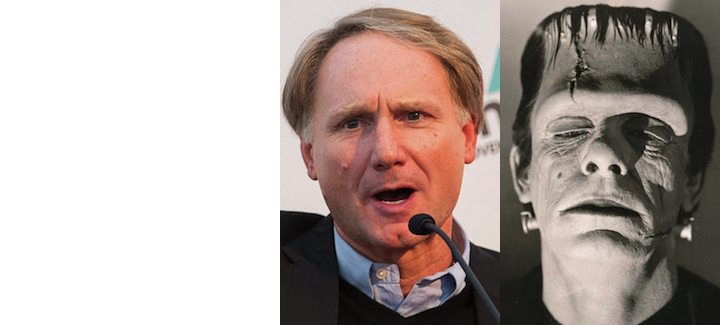Catholic League president Bill Donohue comments on Dan Brown’s recent remarks about God:
The Catholic League took great exception to Dan Brown’s previous books, but we are giving him a pass on his latest volume, Origin. That’s because he has apparently learned his lesson: unlike The Da Vinci Code, and to a lesser extent Angels & Demons, his latest effort doesn’t claim to be part fact, part fiction.
When The Da Vinci Code was released, I explained to Matt Lauer on the “Today” show why the Catholic League objected to both the book and the movie.
“Dan Brown said on this show, the ‘Today’ show, that it was based on historical fact. I have the record on this. Dan Brown opens his book with three facts, all of which are historically wrong. So he can’t have it both ways. He’s playing both sides of the street the way Oliver Stone did, the way Alex Haley did.”
I asked The Da Vinci Code director Ron Howard—in a New York Times op-ed page ad—to offer a disclaimer in the film stating that it was pure fiction. He refused, which only intensified our protest. Origin, however, makes no pretense about being a true story. Hence our disinterest in it. But we are still interested in challenging Brown on his religious ruminations.
Dan Brown told a German audience last week that God may soon be passé. “Are we naive today to believe that the gods of the present will survive and be there in a hundred years?” The need for God, he said, will no longer haunt humanity, and that is because artificial intelligence will develop a new form of “collective conscience.”
Not sure whether Brown knows it or not, but the term “collective conscience” was introduced in the late nineteenth century by the great French sociologist, Emile Durkheim. He coined it to show that, unlike the individual conscience, there was a more widely held set of ideas, beliefs, and moral sentiments that formed the collective conscience of the people.
Religion, Durkheim said, played a big role in constituting the collective conscience. But he never met Dan Brown. Brown apparently thinks that we are on the verge of a new Dr. Victor Frankenstein, a mad scientist who can create new forms of life, or in this case, a new collective conscience.
The problem for Brown is daunting: the collective conscience has to have a content, and if it is not based on religious beliefs, what exactly will it be based on? Science? Impossible. The function of the collective conscience is to bind people together, and that is something outside the domain of science.
Brown also thinks that “some form of global consciousness” will emerge, one that will “become our divine.” (Looks like even Brown can’t rid humanity of divinity.) But the idea of a “global consciousness” is a fiction—it does not exist, and never will.
Ironically, Brown made this inane comment in the same speech where he addressed the movement on the part of Catalonia to become independent of Spain. “I love Catalonia. I love Spain. I hope they work it out. It’s a heartbreaking situation, but it’s a sign of the times.”
Yes, it’s just like Brexit. If anything, there is a strong movement worldwide away from the kind of unity that a “global consciousness” is predicated on. So why is he coming to a conclusion that is undercut by his own observation? His fertile imagination is one of the great wonders of the world.
Finally, Brown tells us that “Our need for that exterior god, that sits up there and judges us…will diminish and eventually disappear.”
Judgment. That’s what is really eating Brown. He and his ilk are scared to death of being judged by the Almighty. But even Frankenstein made judgments, and none was more important than his decision to devour his creator, Dr. Victor Frankenstein.







